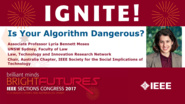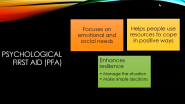140 resources related to
Criminal law
Read more
Featured Article
Read more
Related topics
No topics related to "Criminal law"
Top Conferences on Criminal law
2022 IEEE 52nd International Symposium on Multiple-Valued Logic (ISMVL)
2021 13th International Conference on Cyber Conflict (CyCon)
2020 IEEE International Conference on Systems, Man, and Cybernetics (SMC)
2018 14th International Conference on Natural Computation, Fuzzy Systems and Knowledge Discovery (ICNC-FSKD)
2018 World Automation Congress (WAC)
2018 APWG Symposium on Electronic Crime Research (eCrime)
2018 4th International Conference on Recent Advances in Information Technology (RAIT)
2018 11th International Symposium on Mechatronics and its Applications (ISMA)
2018 IEEE International Conference on Intelligent Transportation Systems (ITSC)
2017 IEEE Long Island Systems, Applications and Technology Conference (LISAT)
2017 IEEE 14th International Conference on Networking, Sensing and Control (ICNSC)
2017 8th IEEE International Conference on Software Engineering and Service Science (ICSESS)
2017 IEEE 37th International Conference on Distributed Computing Systems (ICDCS)
2017 Information Security for South Africa (ISSA)
2015 IEEE 2nd International Conference on Recent Trends in Information Systems (ReTIS)
2014 IEEE Colloquium on Humanities, Science and Engineering (CHUSER)
2013 IEEE International Conferene on Business Innovation and Technology Management Conference (BITM)
2013 8th International Workshop on Systematic Approaches to Digital Forensics Engineering (SADFE)
2012 International Conference on Management and Service Science (MASS 2012)
2012 International Conference on Computing, Communication and Applications (ICCCA)
2012 Third Cybercrime and Trustworthy Computing Workshop (CTC)
2011 3rd IEEE International Conference on Information Management and Engineering (ICIME)
2011 International Conference on Multimedia and Signal Processing (CMSP)
2011 Fourth International Joint Conference on Computational Sciences and Optimization (CSO)
2011 International Conference on Human Health and Biomedical Engineering (HHBE)
2011 International Conference on Multimedia Technology (ICMT)
2011 International Conference on Emerging Trends in Electrical and Computer Technology (ICETECT 2011)
2010 International Conference on E-Health Networking, Digital Ecosystems and Technologies (EDT)
2010 2nd International Workshop on Database Technology and Applications (DBTA)
2010 International Conference on Computer Application and System Modeling (ICCASM 2010)
2009 International Conference on Test and Measurement (ICTM)
2008 Biometrics Symposium (BSYM)
2008 IEEE Congress on Services Part II (SERVICES-2)
More links
Top Videos on Criminal law



